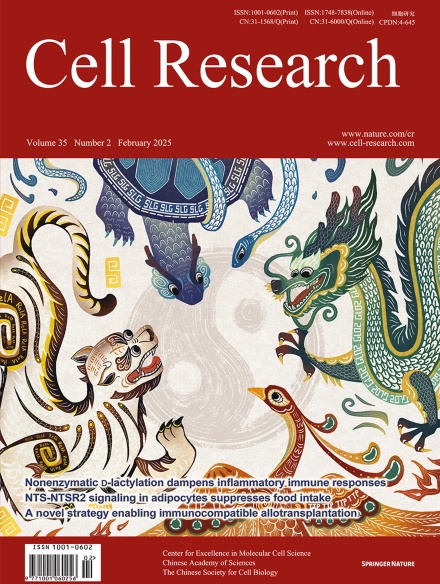
Advanced Search
Submit Manuscript
Advanced Search
Submit Manuscript
Volume 35, No 2, Feb 2025
ISSN: 1001-0602
EISSN: 1748-7838 2018
impact factor 17.848*
(Clarivate Analytics, 2019)
Volume 35 Issue 2, February 2025: 132-144 |
Donor MHC-specific thymus vaccination allows for immunocompatible allotransplantation
Yang Liu1,2,3,4,5,† , Hexi Feng1,2,3,4,5,† , Ke Li1,2,3,4,5,† , Ruiyi Li1,2,3,4,5,† , Xiao-Jie Zhang6 , Ye Tian7 , Yujiang Fang1,2,3,4,5 , Yanjie Zhou1,2,3,4,5 , Ling Liu1,2,3,4,5,* , Xiaoqing Zhang1,2,3,4,5,8,*
1Translational Medical Center for Stem Cell Therapy, Shanghai East Hospital, School of Medicine, Tongji University, Shanghai, ChinaOrgan transplantation is the last-resort option to treat organ failure. However, less than 10% of patients benefit from this only option due to lack of major histocompatibility complex (MHC)-matched donor organs and 25%–80% of donated organs could not find MHC-matched recipients. T cell allorecognition is the principal mechanism for allogeneic graft rejection. We herein present a “donor MHC-specific thymus vaccination” (DMTV) strategy to induce T cell tolerance to both autologous and allogeneic donor MHC. Allogeneic MHC molecules were expressed in the recipient thymus through adeno-associated virus-mediated delivery, which led to stable expression of allogeneic MHC together with the autologous MHC in the engineered thymus. During local T cell education, those T cells recognizing either autologous MHC or allogeneic MHC were equally depleted. We constructed C57BL/6-MHC and BALB/c-MHC dual immunocompatible mice via thymus vaccination of C57BL/6-MHC into the BALB/c thymus and observed long-term graft tolerance after transplantation of C57BL/6 skin and C57BL/6 mouse embryonic stem cells into the vaccinated BALB/c mice. We also validated our DMTV strategy in a bone marrow, liver, thymus (BLT)-humanized mouse model for immunocompatible allotransplantation of human embryonic stem cells. Our study suggests that the DMTV strategy is a potent avenue to introduce a donor compatible immune system in recipients, which overcomes the clinical dilemma of the extreme shortage of MHC-matched donor organs for treating patients with end-stage organ failure.
https://doi.org/10.1038/s41422-024-01049-5